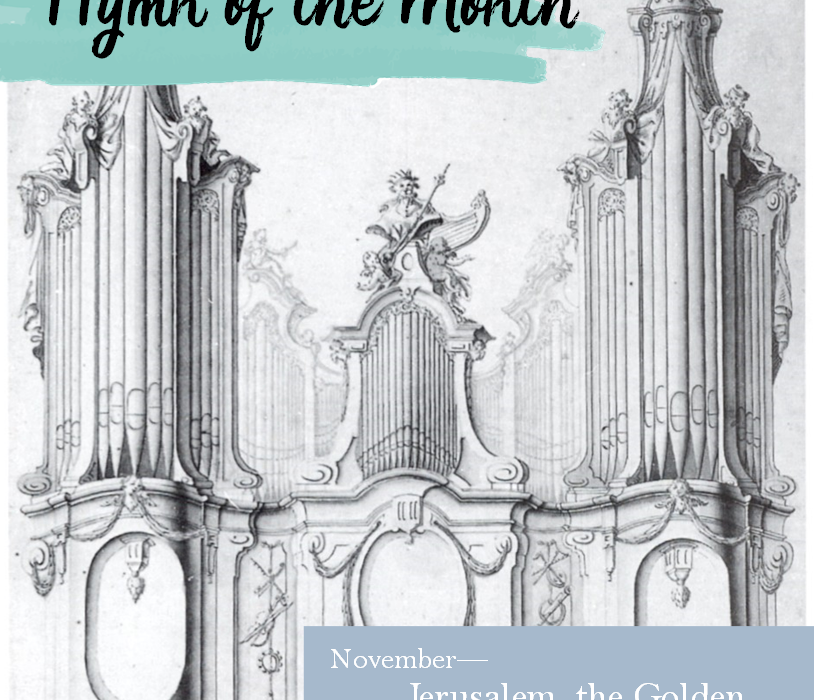Hymn of the Month
Jerusalem, the Golden (LSB 672)
A gem of our treasured hymnody, “Jerusalem the Golden” reminds us in this last month of the Church year what it is we look forward to in the life to come. Although it illustrates the beatific vision of heaven, it was written amidst the depths of earthly distress. Bernard of Cluny, its writer, was a Benedictine monk in France in the 1100’s A.D. At this time, Muslims were menacing European communities and the Second Crusade was underway; more than that, a papal schism rent the Western Church (i.e., there were two opposing popes at once!), and that was only the tip of the corruption rotting through European Christianity. It was just this sort of corruption that culminated in the Reformation four hundred years later, but at the time of our hymn’s composition, there was no Martin Luther in sight. Things looked bleak.
Needless to say, Bernard of Cluny was disgusted by the evil within the institutional church and troubled by the war and strife outside it. Famously—and understandably—he penned a 3,000-line poem entitled On Contempt of the World. Most the poem is a bitter satire mocking the abominations he saw, but the excerpt from which our hymn is taken contrasts this world’s evils to the glories of heaven. Here, he draws upon the visions of the book of Revelation, painting a picture of gold-paved streets and the Church Triumphant’s long-awaited union with Christ.
As Israel of old, we sing in stanza one of a land flowing with milk and honey, for heaven is the ultimate Promised Land. This flows into stanza two, wherein we survey the Holy City of Zion, seeing the whole Church joined together—martyrs, saints, and even angels. And as the tune swells to the high note of the third line, the singer declares “The Prince is ever with them”! There we shall find the consummation of all our joy.
Stanza three focuses upon the Feast of the Lamb, that final Lord’s Supper which shall never end. The saints crowd around the throne to “raise loud their songs of triumph to celebrate the feast,” as though singing the liturgy of the Sacrament of the Altar! They sing the praises of Him who “conquered in the fight, who won for them forever their gleaming robes of white.” Here, the dreadful battle of the Cross is woven into the radiant baptismal gowns which we wear forevermore.
The last stanza concludes in sweet doxology, hailing this blessed country as the eternal sanctuary of God’s people. We end the song with the longing prayer of those still sojourning in this world: “In mercy, Jesus, bring us to that eternal rest, with You and God the Father and Spirit, ever blest.”
Personally, my favorite part of this hymn is its melody. Despite its glorious subject, the tune is beautifully subdued. It begins with lower notes, flowing steadily forward in hopeful contemplation, much like our own souls. But in the midst of our suffering, our eyes are drawn upward in the sure hope of our deliverance, just as the melody in that third line builds to the heartrending high note.
How fitting is this hymn for such a time as ours: national strife, worries of global war, infidelity in the church (need I go on?). And yet, how unremarkable is our current moment in history, for every other moment is also filled with sin and death. There will always be suffering. But together with Bernard of Cluny, we as the Church can rightly survey this contemptuous, fallen world through the lens of the Cross, knowing that even Good Friday ended in Easter morning. Our darkness, too, will be drawn back like a curtain, revealing the radiancy of heaven, of Christ Himself. No matter what happens, we live in the certain assurance of Jesus’ victory, and we look forward to our full and final union with Him in that “sweet and blessed country,” the heavenly Jerusalem.



